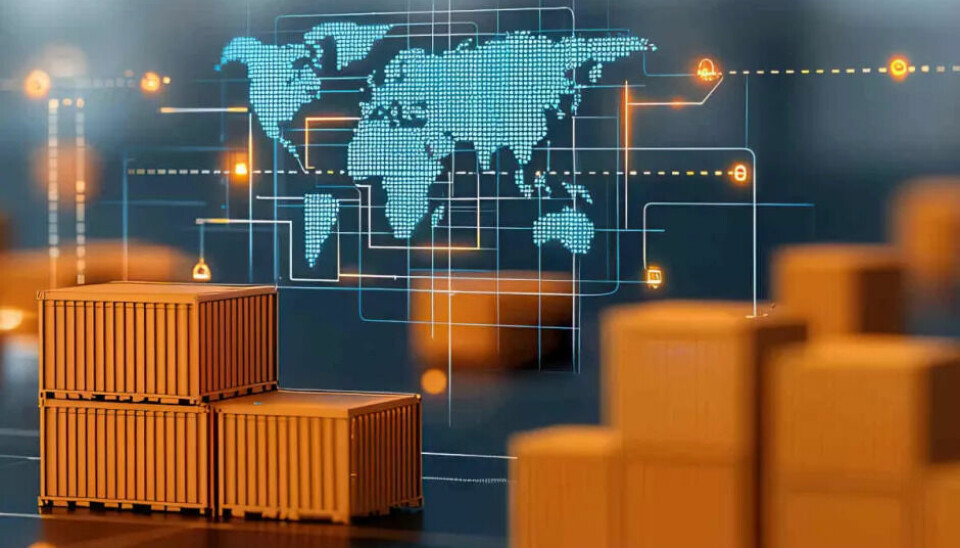Interview
Global crises: How the mechanical engineering industry should respond now

Global uncertainties, erratic regulations, and fragile sourcing are pushing the mechanical engineering industry to its limits. But new paths are emerging. An interview with Oliver Bendig, head of industrial consulting at Deloitte.
Mr. Bendig, we are in a phase of multiple problems for German industry and thus also for mechanical engineering. What is currently causing the most unrest and nervousness?

Oliver Bendig: Quite clearly the uncertainty and volatility in the framework conditions. Especially in mechanical engineering with its long investment cycles - a classic machine is in the field for five, ten, sometimes up to 50 years - we have benefited for decades from the reliability of German politics, the long-term orientation of our often family-run "German Mittelstand," and thus our position as a rock in the surf of global economic cycles.
Fundamental changes, for example in trade policy or regulation, are creating a completely new environment today. The framework conditions for investment decisions now have a half-life that is shorter than the development cycle of the next product variant. These are very fundamental changes, not only for mechanical engineering, but especially here.
The mechanical engineering industry has often shown that it can reinvent itself time and again. But not in the rhythm of changing seasons, rather with a clear, long-term oriented course.
How must I, especially as a medium-sized company, position myself to adequately address tariffs, AI, supply chains, and all other uncertainties?
Bendig: Basically, every company must engage intensively with all these topics and innovations. But you can't be at every party, so it's important to separate the urgent from the important and not get bogged down. Many medium-sized companies neither have the capacity nor the financial means to be everywhere all the time. They should not treat AI as a wild growth, but rather use new technologies in a targeted manner, for example in customer service to strengthen their margin, in product development to reduce complexity, or in the so-called 'enabling services' to increase efficiencies.
Let's get specific: How would you design sourcing, taking into account the political and economic environmental parameters?
Bendig: The same applies here: Reliability and predictability are crucial. What good does it do to concentrate the entire purchasing volume for important components of the manufacturing process on one supplier, possibly with production capacities in one region, to optimize costs down to the last percentage point? Especially in the current situation, such a decision can cripple production capacities, endanger delivery capability, and lead to the loss of supply contracts.
First, it is important to create full transparency about existing intermediate products and raw materials, also taking into account existing and future delivery obligations. Then, current and - in different scenarios - possible further bottlenecks should be identified.
Based on this, the supplier network must be questioned: How can I shift the volume in the event of possible bottlenecks? Which of my suppliers could potentially increase their capacities at short notice? Are there also alternative so-called "near-shore" suppliers in Europe? In all of this, it must be said: Competitive purchase prices are beyond question, but flexibility and reliability to be able to act in uncertain times have their price. The cheapest price has rarely been the best price.
Which markets - both by industry and region - should machine builders examine more closely?
Bendig: They will not be able to avoid developing strategies for more than one region and more than one market. Europe holds significant opportunities, and a reduction in bureaucracy could boost export growth even in large markets like France or the Netherlands.
China will likely regain importance for the German industry overall and in the long term. But smaller Asian markets like Vietnam or the Philippines also hold significant potential for German industrial companies. However, much depends on the trade policy developments of the coming months and years.
How might a more strategic approach in this regard affect the product structure?
Bendig: Companies are well advised to produce in the region for the region. Customer requirements do differ - a German premium machine, which is standard for us, is not always needed in other parts of the world. This does not mean that German companies should give up their commitment to quality. But often "lower specs machines" suffice, albeit at high quality.
It is becoming increasingly important to develop, produce, and distribute products in the region. The times when German engineers in Munich, Erlangen, or Wolfsburg could develop high-quality products are over - often local teams in China or Thailand are faster and even more customer-oriented.
It is becoming increasingly important to design production capacities in such a way that in cases of global disruption or danger, productions can also be flexibly relocated within the production network.
Last not least: The world hopes for an end to the Ukraine war. This is linked to the reconstruction of the country. What opportunities do you see for German mechanical engineering to contribute to solutions there?
Bendig: We all wish for the people suffering from this war to live in freedom and peace, without danger to life and limb. I am optimistic, this time will hopefully come soon, and then it will be important to rebuild Ukraine. Mechanical engineering should be prepared for this.